Table of Contents
Crafting a TV Show Idea
Longevity of story is foremost what separates an idea suited to the small screen, from one suited to the big.
- Does the wider story consist of many contained, smaller stories?
- Is the wider story inconclusive? Or is its conclusion not a spec on the horizon from the opening?
- Is the idea so thematic that it requires multiple premises, compiled as an anthology?
If any of the answers are yes (and it’s not in the MCU) then in all likelihood it’s a brilliant TV Show idea.
Well, only ‘brilliant’ if quality and appeal are present. One could write a hundred stories about, say, a stationery supplier’s sales team. Who knows, a couple may even get interesting. But ultimately the idea seems too dull and repetitive to get anywhere near a TV screen.
However, if it’s crafted with inspired characters, far-fetched situations and hilarious jokes within a mockumentary format, then we’re talking about The Office.
By drawing comedy from the mundane corporate life that the audience wishes to escape from (rather than avoiding it with pure fantasy), a brilliant TV show is born.
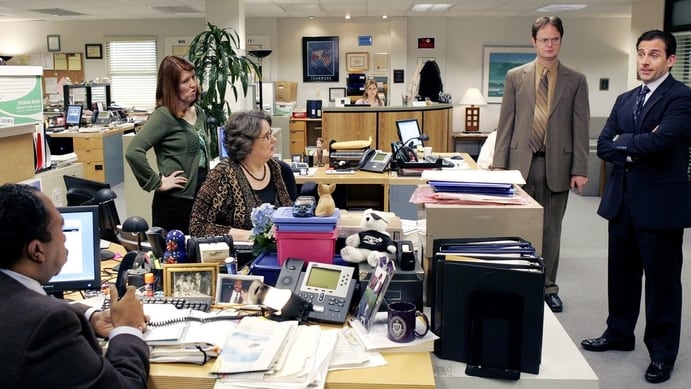
Navigating the realm of speculative TV ideas can be tricky. Indeed, network execs themselves can’t really predict whether one of their purchases will be brilliant. Many greatly anticipated shows flop, just as underdogs dominate award shows.
Still, there are fundamentals to crafting brilliant TV show ideas. And the hits can teach us a ton of lessons. So let’s look at the essential ways to craft a brilliant TV show idea.
Whilst this article will focus on how to generate TV show ideas, take a look at our separate guide on how to generate great movie ideas.
Generate A LOT of TV Show Ideas
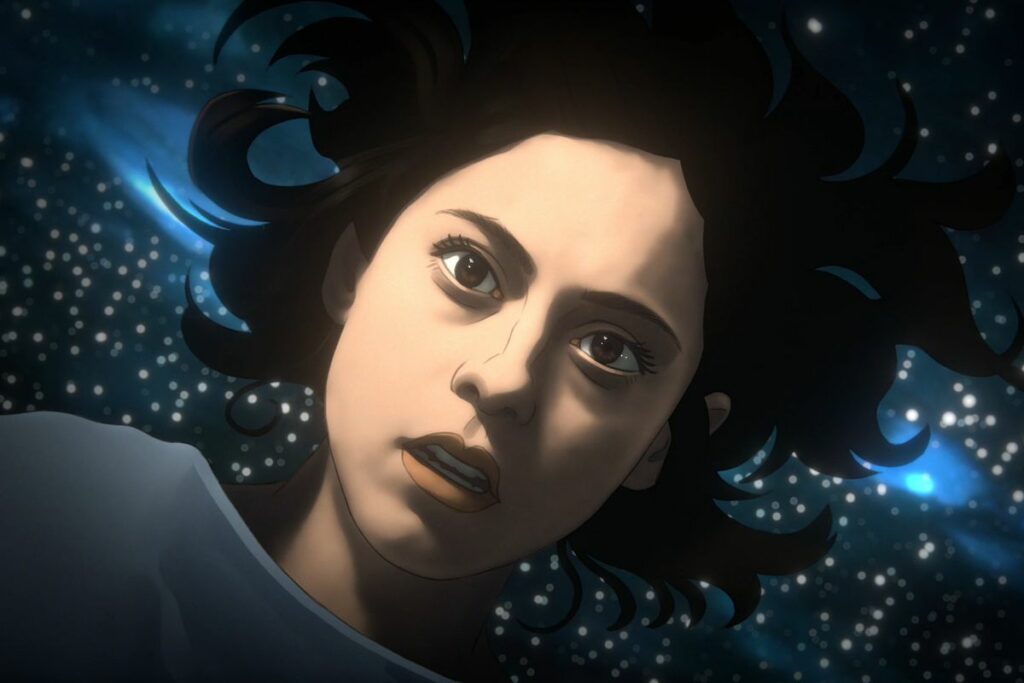
Understanding what makes a TV idea brilliant is vital, but not necessarily sufficient for coming up with one. Trying to craft an idea with a dogged aim at brilliance may well hinder progress and stifle creativity.
Too often we judge ideas prematurely. And thusly, we miss the benefits of tentatively prioritizing quantity over quality. Benefits such as:
- The lack of pressure allows for essential playfulness, and leaves us open for inspiration.
- Like exercising a muscle, repeatedly practising being conceptive increases one’s strength at it.
- The probability of sniffing out a lead in 100 ideas is far higher than that of 3.
Being able to forget about budget and brilliance won’t last in this game – so enjoy it. Here are some tips for generating A LOT of ideas:
- Get a whiteboard and use it for mind maps, mammoth lists, and something to pace, musingly in front of.
- Find someone with similar taste to you but with different and (ideally) complimentary ideas with whom you can brainstorm.
- Keep your phone’s recorder or notepad on the home screen for when inspiration inconveniently strikes.
- As you have may a routine for writing, devote a slot to brainstorming too; and do it every day.
If you already have a clear and specific vision, then spend this stage coming up with alternative angles, additional characters and episode ideas.
Allowing yourself to entertain your thoughts and cultivate your creativity is essential for crafting a brilliant TV idea. The wheat will be separated from the chaff, but first, it must be grown.
Judge Your Ideas
Now, about that chaff.
Before developing an idea, you need to determine whether or not it will be a waste of time to do so. It’s essential to keep an open mind (all ground-breaking TV is the fruit of such minds). But being harsh with your judgement is vital.
If your ideas can’t withstand your own judgement, then they sure aren’t going to withstand an audience’s. This isn’t the time for self-indulgence; what’s powerful or funny to you might be cringeworthy to your viewer – and not in a brilliant Curb Your Enthusiasm way.
Test your ideas out on people. Sort of like a mini-pitch, but to friends, family, or co-workers. Watch for people’s honest reactions; has the idea sparked engagement, or are people falling unconscious?
“You’re allowed to bore your friends and family, but to bore your audience is unforgivable”
Phoebe Waller-Bridge
Breaking the Idea Down
Some ideas sound good on paper, but when scrutinized for effective character dynamics etc. are vague or limited. Boil your notes down, what are the idea’s elements?
The motif of “school friends, back in the day, causing trouble” might continually crop up if you read a lot of scripts. But that’s not a TV show idea in and of itself. For example, is it a coming-of-age comedy with bullies and crushes? Or a tragedy of nascent criminality with cops and gangsters? – “It’s like, nostalgia and cracking jokes”.
It’s too vague and limited to justify a series is what it is.
Such a note may well inspire a good TV show idea. But before developing it, it should already have a strong indication of:
- Central character dynamics
- Irony
- Tone and/or genre
- Stakes
- Setting/World
- Obstacles
Also, consider whether or not the idea is right for you. Perhaps during your brainstorming, a brilliant action premise has revealed itself. But if you write feel-good comedy and action bores you then maybe that’s an idea for someone else. Alternatively, you could find a way to combine your style with the idea, if possible.
Developing a Brilliant TV Show Idea
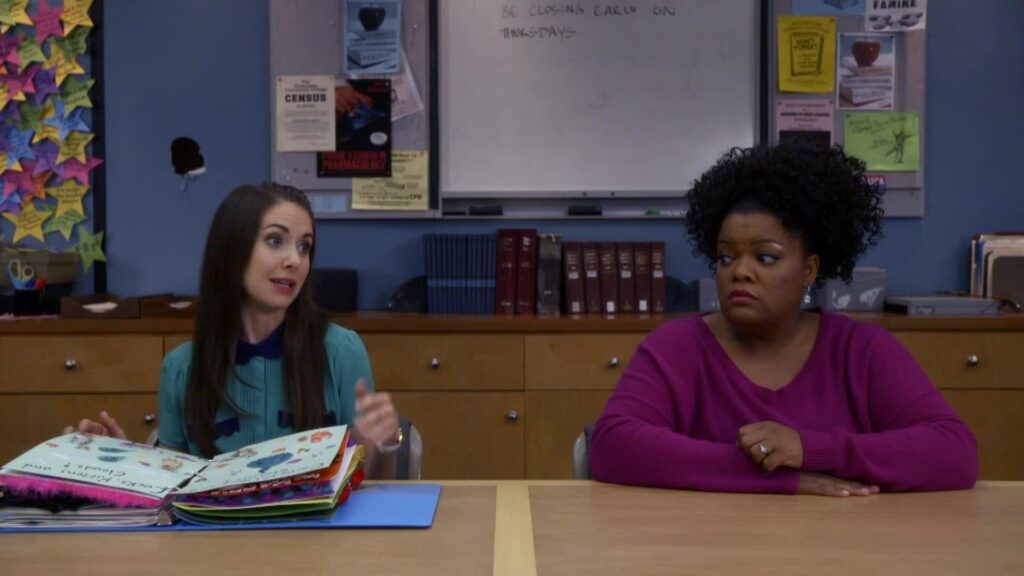
To go into actual development the idea must have a successful pitch. (Pitches and treatments are an art in themselves -check out our article for creating a movie pitch and tv pitch for that stage).
Before this though, naturally, you’ll develop the idea yourself:
More than being harsh, you now need to aggressively pick holes in your idea. Whoever you’re pitching to will do this, so you might as well be ready.
Pretend that you hate the idea. How would you construct an argument against it? You’ll probably never craft a totally bulletproof show- but attempting to is essential.
“… A good screenwriter, especially anyone writing on spec, has to think about everyone all down the line, from the agent to the producer to the studio head to the public”
Blake Snyder
Find other creatives, ideally professionals, with who you can discuss your idea at length. Walk them through an episode; welcome interruptions, new ideas and opinions.
It’s easy to get defensive or possessive of an idea. But remember that TV is a medium of mass communication. And as such, development is often a communicative process.
You probably haven’t seen every TV show. So if you can’t find other professionals, a TV buff will be a lot better than nothing.
In development, these are the kinds of questions that need to be answered:
What Happens in Episode Thirty-Two?
As previously stated, story longevity is paramount for TV; especially if the idea is in sitcom or soap territory. Will the idea’s conflict regenerate without feeling repetitive? And what will the typical structure of each episode look like – this is where some degree of repetition is essential.
Is There Irony?
Brilliant TV ideas tend to have a strong sense of irony. For example, Buffy is a blonde high school girl killing vampires, David Brent forgoes work to be mates with everyone, but doesn’t know he’s a dick. Whilst in Teachers the staff are worse than the students.
Novelty?
Living in the age of content cuts both ways. Whilst there’s room for risk because streaming services are less regulated and try to outdo each other by picking up originals, there’s also a feeling that everything’s been done.
Is your style fresh, if your core concept isn’t? Russian Doll, for example, is a stunning reinvention of the idea behind Groundhog Day. And since its success, unique time loop premises keep cropping up.
Brilliant Characters and Dynamics?
All stories need at least one outstanding subject around whom dynamics with the world and other characters are built. With TV, you’re asking the audience to invite these personalities into their living rooms every week.
Moreover, you’re asking them to invite your characters rather than any others from the wealth banging on the door. Brilliance is a minimum in the character department.
Research for a Brilliant TV Show Idea
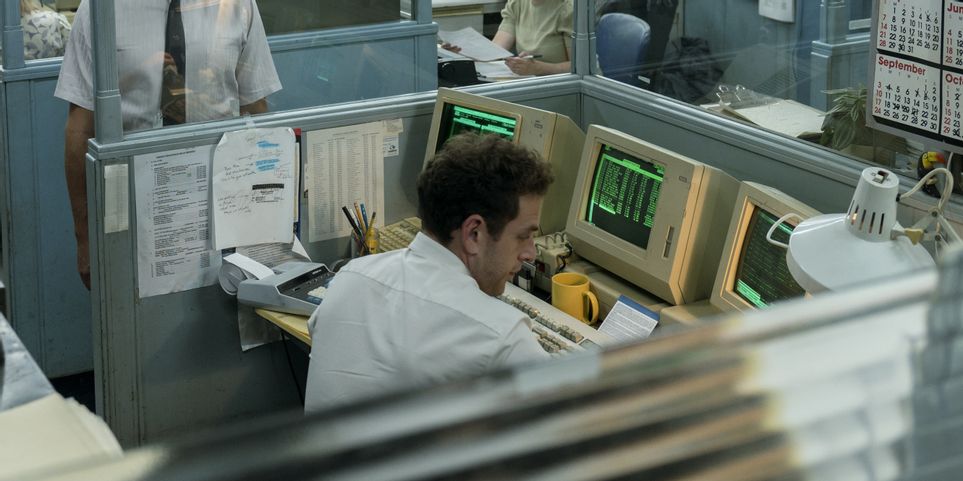
From fantasy to crime, TV shows are all based on reality to some degree. For a series to have authenticity, research is an essential part of the writing. Whilst you don’t necessarily need to research when crafting an idea, it may still come in handy.
For example, if you’ve always wanted to do a cop show but need a fresh angle, then researching that field might reveal a previously un-televised aspect.
Research often takes the form of consultants and advisors long after an idea has been greenlit. That said, so many journalists (with serious research chops) end up crafting brilliant ideas not just for TV but for books and films too.
One of the most famous examples of such a career switch is the creator of The Wire, David Simon:
In fact, he reverses the principle by using the entertainment factor to impress authentic reality rather than the other way around. The nobility of Mr Simon’s intentions notwithstanding, The Wire is a brilliant TV show… And that’s down to research.
Even if your idea is a bit more off-ground, it could still benefit from research. A fantasy involving Tolkienesque creatures, for example, would require an exploration of folklore.
Consume consume consume – your viewing/reading history is certainly one aspect of research. Hwang Dong-Hyuk spent years reading whatever violent strains of manga and manhwa he could get his hands on – and then he made Squid Game.
Examples: Stories Behind the Stories
Black Mirror
Black Mirror is chillingly pertinent, thought-provoking and thrilling. It’s a brilliant TV show idea crafted out of the desire to revitalise the 20th century’s forgotten TV gold.
Writer Charlie Brooker was disappointed at the lack of mind-bending shows like The Twilight Zone in the 21st century, so he decided to make his own.
Combining high concept ‘What-Ifs’ with social commentary was Brooker’s essential approach. Technology became the focal point in development because, like Nick Kroll with Big Mouth (see below), he used theme to tap into a specific vein of stories. Only his are based more on deliberately fanciful speculation, rather than experiences and metaphor.
Black Mirror is an anthology series; a particularly interesting (and perhaps underused) approach to crafting TV brilliance. An anthology series links its episodes by theme, tone and genre rather than narrative.
When repetition of premise, characters and settings isn’t relied on for a series’ longevity, there’s more freedom to explore different concepts. Oh, and you can kill off all the main characters.
(American Horror Story is another great anthology series that brilliantly demonstrates the format‘s potential).
Big Mouth
Open-mindedness was mentioned earlier – and it certainly took some of that to get this show made. Big Mouth was ground-breaking due to the extent to which its themes are graphically explored.
Creator Nick Kroll hit puberty late whilst his friend hit it early. So he used this dynamic as a foundation for the sitcom. (Consider the difference between that and the school days example in ‘Judge Your Ideas’)
Like the creators of Sex Education and Pen15, Kroll tapped the rich vein of painfully relatable sexual development stories; finding a niche in nascent puberty.
The show also consults with “Emotions Researcher” Brene Brown, to help craft characters such as the “Shame Wizard”.
The idea only got to such a stage, however, after development meetings with other creatives. Multiple heads were put together, and many embarrassing memories were divulged; the collaborative route to crafting a brilliant TV idea.
The Sopranos
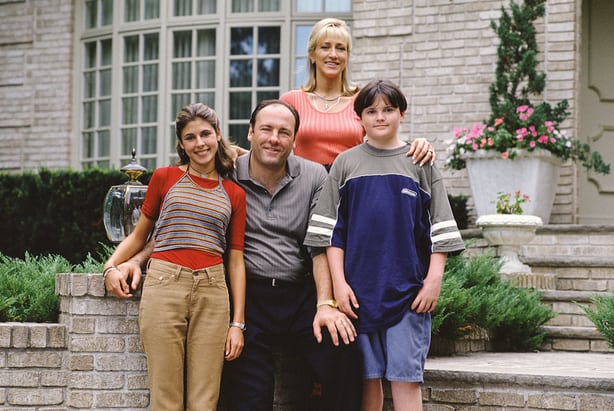
Not all brilliant ideas are rooted in collaboration, however. David Chase was mostly a one-man army when it came to crafting the idea for The Sopranos. The first idea for this character-driven masterpiece was the dynamic between a mob boss and his mother.
Chase’s own ornery mother was so fundamental to the crafting of this idea, that only after her death did Chase dare write it.
The idea was originally a mob comedy with a mother antagonist. Though Chase’s agent had no faith in the genre. Then the dynamic of a mob boss and therapist struck. And, although it was funny, by not treating it like a parody he crafted an outstanding premise.
The maternal dynamic became fundamental to The Sopranos. The road to crafting a brilliant TV show idea is paved with great notes and ideas with which to substantiate the writing, when the time comes.
So don’t get too frustrated if an idea is ditched – it may be useful later.
Fleabag
Circa 2013, Phoebe Waller-Bridge had to fill a ten-minute slot of her friend’s story-telling stand-up act at a fringe festival.
Her lack of experience in stand-up caused the irresolute Waller-Bridge to rely on her actor-writer chops, to which she created a character rather than a narrative joke.
Perhaps the pressures added something, perhaps not. But the idea she crafted for that slot eventually matured into the Emmy-hoovering Fleabag.
Although the titular character is firmly not based on Waller-Bridge, she is based on ideas of great significance to her. The tribulations of female sexuality in contemporary society might be something from which a viewer intends to escape – but that’s her magic trick.
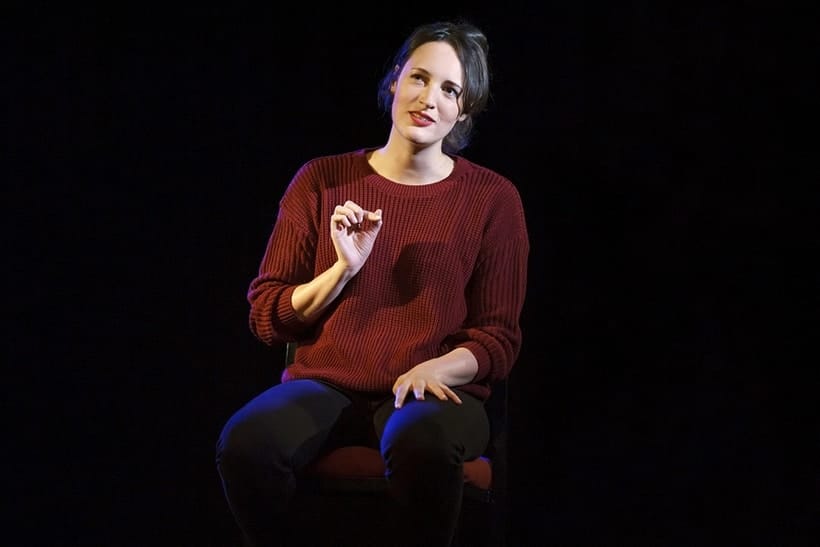
Waller-Bridge often refers to her style as one that employs comedy to misdirect the audience into engaging with serious themes.
Crafting a brilliant TV show idea can be a matter of using yourself, and that which is personally significant to you, to craft a subject who (as in the case of Fleabag) is inseparable from the concept.
Indeed, character-driven stories make the most brilliant TV ideas. Even the high concept Black Mirror notably avoids the huge, new-world-order style narratives, and instead focuses on how one or two characters interact with the ideas.
Ultimately, this is the key dynamic to great TV show ideas – the intersection between a solid concept and characters that can continually be returned to again and again.
– What did you think of this article? Share It, Like It, give it a rating, and let us know your thoughts in the comments box further down…
– Struggling with a script or book? Story analysis is what we do, all day, every day… check out our range of script coverage services for writers & filmmakers.
This article was written by Robbie Tyler and edited by IS Staff.
Get *ALL* our FREE Resources
Tackle the trickiest areas of screenwriting with our exclusive eBooks. Get all our FREE resources when you join 60,000 filmmakers on our mailing list!



